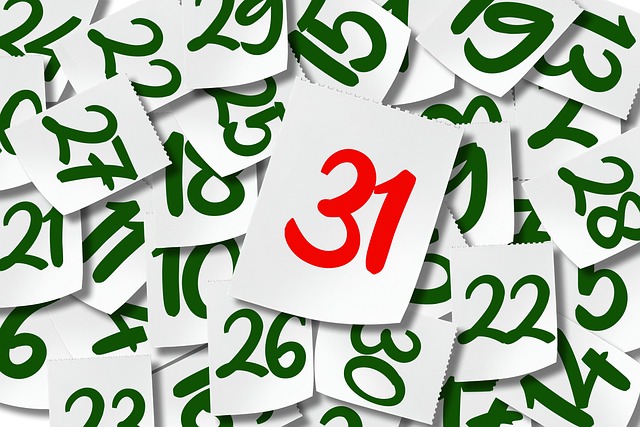TL;DR:
UK Historical Documents Translation Services are essential for accurate and culturally sensitive interpretation of ancient texts, bridging linguistic gaps and preserving historical nuances. These services leverage expert translators with deep language and history knowledge to ensure integrity in translating diverse documents from Old English to medieval Latin. They employ advanced tools and rigorous multi-stage review processes, enhancing accessibility via digital platforms while maintaining accuracy and context. Success stories highlight their role in fostering global historical understanding, as seen in cross-cultural legal document translations.
In today’s globalized world, translating historical documents is paramount for historians seeking a comprehensive view of the past. Accurate translation not only breaks language barriers but also preserves cultural heritage and enables scholars to explore diverse historical narratives. This article delves into the intricacies of UK historical documents translation services, highlighting their role in facilitating international research. From understanding cultural nuances to employing advanced technologies, we explore strategies that empower historians to access and interpret global historical tapestry.
- Understanding the Importance of Accurate Translation in Historical Research
- The Role of Professional Translators in Preserving Cultural Heritage
- UK-Based Historical Document Translation: A Specialized Service
- Challenges and Considerations in Translating Historic Texts
- Techniques for Handling Ancient Languages and Dialects
- Ensuring Fidelity: Translating Historical Context and Nuances
- Quality Assurance Processes in Historical Document Translation
- The Impact of Technology on Efficient Translation Services
- Case Studies: Successful Translations for Global Historians
Understanding the Importance of Accurate Translation in Historical Research

In historical research, every word counts. When exploring ancient texts or examining documents from different cultural contexts, accurate translation is more than just a language service—it’s a gateway to understanding the past. UK Historical Documents Translation Services play a vital role in breaking down linguistic barriers and enabling historians to access and interpret primary sources with precision.
Inaccurate translations can lead to misrepresentations, misinterpretations, or even the loss of nuanced details that hold historical significance. These services employ experts who not only possess profound language skills but also a deep understanding of historical contexts. By leveraging their expertise, researchers can trust that their documents are translated faithfully, ensuring the integrity of historical narratives and fostering a more comprehensive global history.
The Role of Professional Translators in Preserving Cultural Heritage

Professional translators play a pivotal role in preserving and sharing cultural heritage, especially when it comes to historical documents. In the UK, where a rich historical tapestry unfolds, accurate translation services are essential for making these valuable records accessible to a global audience. With their expertise, they bridge the gap between languages and cultures, ensuring that ancient texts, legal papers, and literary works from various eras remain intact and understandable for future generations.
These translators are not just language experts; they are cultural ambassadors. They navigate the nuances of different languages while also understanding the historical context, ensuring that the original intent and meaning are preserved. This meticulous process is crucial when translating UK historical documents, as it allows researchers, historians, and enthusiasts worldwide to immerse themselves in the past, fostering a deeper connection with our shared human history.
UK-Based Historical Document Translation: A Specialized Service

In the realm of historical research, access to primary sources is paramount, and for documents originating from diverse linguistic backgrounds, specialized translation services play a crucial role. UK-based historical document translation stands out as a niche yet vital service, catering to scholars and institutions worldwide. These translators are not just language experts; they are historians themselves, imbuing their expertise into each word translated.
With a wealth of historical knowledge, these professionals navigate the nuances of ancient texts, ensuring accuracy and cultural sensitivity. Whether dealing with medieval manuscripts, colonial-era correspondence, or rare historical artifacts from far-flung regions, UK Historical Documents Translation Services offer a unique blend of linguistic proficiency and historical understanding. This specialized approach guarantees that the translated documents remain faithful to their original intent and context.
Challenges and Considerations in Translating Historic Texts

Translating historic texts presents a unique set of challenges, especially when dealing with documents from different cultural and linguistic backgrounds. UK historical documents translation services must consider more than just language conversion; they must capture the nuances, context, and intent of the original text to ensure accuracy and authenticity. Cultural references, idiomatic expressions, and historical jargon can significantly impact the meaning and are often not directly translatable.
Professional translators must also be mindful of the target audience’s comprehension level and adapt their approach accordingly. For example, simplifying complex terminology while preserving academic integrity is crucial when making these documents accessible to a broader global historian audience. This involves careful analysis, research, and sometimes even consultation with subject matter experts to ensure the translated text remains true to the original historical context.
Techniques for Handling Ancient Languages and Dialects

Translating ancient documents is a delicate process, especially for UK historical documents translation services dealing with languages and dialects that have evolved over millennia. Scholars and translators must employ specialized techniques to ensure accuracy when interpreting texts from bygone eras. One of the primary challenges lies in understanding the historical context, including cultural nuances, idioms, and even the social dynamics that shaped the language.
For example, a UK-based historical documents translation service would approach Old English or medieval Latin texts with an extensive knowledge of archaeological findings, historical events, and contemporary literature from those periods. By immersing themselves in these contexts, translators can make informed decisions when encountering unfamiliar words or structures, thus preserving the original meaning as closely as possible.
Ensuring Fidelity: Translating Historical Context and Nuances

When translating historical documents, especially those from the UK, it’s crucial to go beyond literal word-for-word substitutions. Historical context, cultural nuances, and subtle meanings often lie within the text, requiring translators to become immersive historians themselves. The goal is not just to convey information but to preserve the essence of the original document, ensuring that global readers can understand and appreciate the historical significance without losing the intent and voice of the author.
UK Historical Documents Translation Services employ linguists with a deep understanding of historical contexts, enabling them to capture these nuances accurately. They meticulously research and interpret cultural references, idioms, and historical terms to ensure the translated document resonates authentically with audiences worldwide. This meticulous approach guarantees that the historical narrative remains intact, fostering a genuine connection between past events and present readers across cultures.
Quality Assurance Processes in Historical Document Translation

When it comes to translating historical documents, accuracy is paramount, especially for those delving into the rich tapestry of global history. UK Historical Documents Translation Services understand this critical need and have stringent quality assurance processes in place to guarantee the integrity of each translated text. Their expert translators not only possess a deep understanding of both the source and target languages but also have a keen eye for historical context, ensuring that every nuance is captured precisely.
The translation process involves multiple stages of review and editing to maintain the highest standards. This includes internal quality control checks, where senior translators inspect the work for consistency, terminology accuracy, and adherence to historical references. Additionally, client feedback loops ensure that the translated documents align with their specific requirements, making them invaluable resources for global historians exploring diverse cultural narratives.
The Impact of Technology on Efficient Translation Services

The digital age has brought about a revolution in the field of translation, offering unprecedented opportunities for efficiency and accessibility. For historical document translation services in the UK, technology plays a pivotal role in preserving and sharing global histories. With advanced machine translation tools and artificial intelligence, companies can now quickly process large volumes of text, enabling faster turnaround times without compromising quality. This is particularly beneficial when dealing with rare languages or archaic dialects found in ancient UK historical documents.
Online platforms and cloud-based systems facilitate seamless collaboration between translators, historians, and clients worldwide. These innovations ensure that specialized knowledge and cultural nuances are considered, resulting in accurate translations. Moreover, digital archives and databases make it easier to access and translate valuable historical resources, fostering a more inclusive global history narrative.
Case Studies: Successful Translations for Global Historians

Successful case studies in translating UK historical documents for global audiences demonstrate the critical role professional translation services play in breaking down linguistic barriers and preserving historical narratives. By employing experienced translators who are not only fluent in both source and target languages but also possess a deep understanding of historical context, these services ensure accuracy and cultural nuance.
For example, consider a project involving the translation of 19th-century British legal documents into Spanish for a global academic press. A UK Historical Documents Translation Service successfully navigated complex terminology related to colonial law while preserving the original text’s tone and style. This not only facilitated access to this historical corpus for Spanish-speaking scholars but also enriched their understanding of the period, showcasing how effective translation can enhance cross-cultural historical research.
Global historians rely on accurate translations to uncover and share diverse cultural narratives from the past. The UK’s specialized historical document translation services play a vital role in preserving and disseminating this historical tapestry, ensuring that ancient languages and dialects are handled with care. By employing quality assurance processes and leveraging technology, these services enhance our understanding of history, making it accessible to a global audience. Thus, professional translators become the guardians of cultural heritage, enabling researchers worldwide to explore and interpret historic texts with precision and insight.
